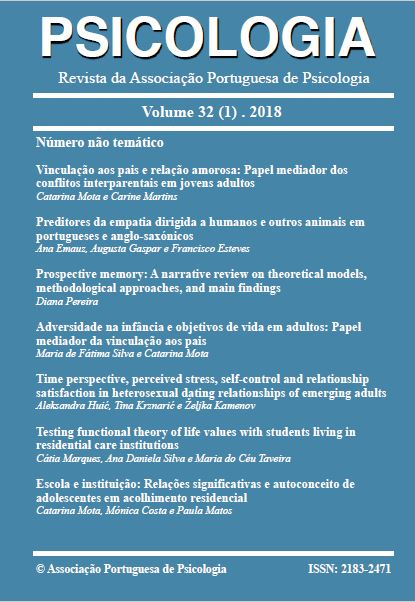Time perspective, perceived stress, self-control and relationship satisfaction in heterosexual dating relationships of emerging adults
DOI:
https://doi.org/10.17575/rpsicol.v32i1.1327Abstract
This study investigates possible protective and vulnerability factors in the link between perceived stress and relationship satisfaction in dating relationships of emerging adults. We investigate whether self-control, as a positive self-regulation resource, serves as a buffer mitigating the negative effect of stress on relationships. We posited a pathway model in which we examine whether maladaptive time-perspectives represent vulnerability factors leading to higher perceived stress which is in turn associated with impaired self-control and lower relationship satisfaction. In an on-line survey, we collected data on time perspectives, perceived stress, self-control and relationship satisfaction from 360 emerging adults in heterosexual dating relationships. Perceived stress was associated with impaired self-control and lower relationship satisfaction. Past-negative, but not present-fatalistic perspective, was associated with more perceived stress which mediated the relationship between past-negative perspective and relationship satisfaction. However, adding this vulnerability factor to the model lead to self-control no longer having a significant buffering effect.


